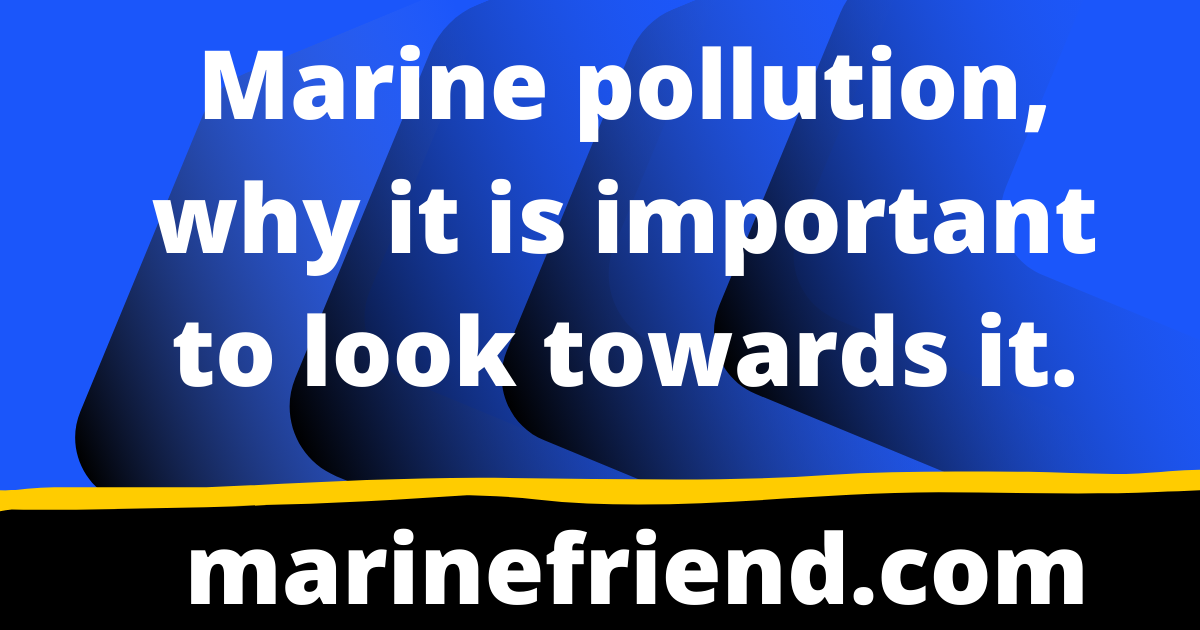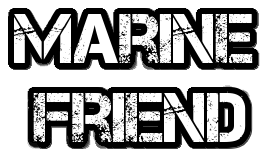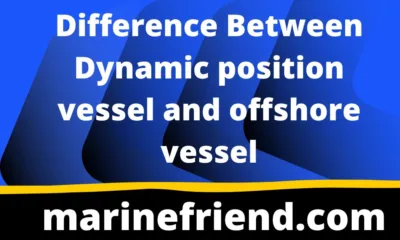DG SHIPPING
Marine pollution,why it is important to look towards it 2024

Marine pollution, why it is important to look towards it.
Marine pollution, also known as ocean pollution or water pollution, refers to the contamination of the marine environment by harmful substances or waste. This can include a wide range of materials, such as plastic, oil, chemicals, sewage, and garbage.
Marine pollution is a major environmental and health concern, as it can have serious consequences for the health of the ocean and the creatures that depend on it. It can also have significant economic impacts, as pollution can damage marine ecosystems, harm tourism, and result in costly clean-up efforts.
There are a number of sources of marine pollution, including:
- Land-based sources: Many pollutants enter the ocean from land, carried by stormwater runoff or via rivers and other waterways. This can include sewage, pesticides, and other chemicals.
- Shipping and transportation: The shipping industry is a major contributor to marine pollution, with ships releasing oil, chemicals, and other pollutants into the ocean.
- Oil and gas operations: Oil and gas exploration and production can also result in marine pollution, including oil spills and the release of toxic chemicals.
- Aquaculture: The farming of seafood, also known as aquaculture, can contribute to marine pollution through the use of chemicals, the release of waste and uneaten feed, and the introduction of non-native species.
To address marine pollution, it is important to reduce the amount of harmful substances entering the ocean, as well as to clean up existing pollution. This can include measures such as improving waste management practices, regulating shipping and other industries, and implementing clean-up programs.
Individuals can also play a role in reducing marine pollution by properly disposing of trash, supporting sustainable seafood choices, and advocating for policies to protect the marine environment. By taking action to reduce marine pollution, we can help to protect and preserve the health of the ocean for future generations.
Marine pollution can have serious consequences for the health of the ocean and the creatures that depend on it. Some of the negative impacts of marine pollution include:
- Harm to marine life: Pollutants can harm or kill marine animals directly, or they can accumulate in the food chain, resulting in harmful effects on species higher up the chain.
- Damage to marine habitats: Pollutants can also damage or destroy marine habitats, such as coral reefs, which can have cascading impacts on the species that depend on them.
- Contamination of seafood: Marine pollution can also contaminate seafood, posing a risk to human health.
- Loss of economic value: Pollution can also have economic consequences, as it can damage marine ecosystems and harm tourism, resulting in lost revenue.
- Human health impacts: Marine pollution can also have negative impacts on human health, as pollutants can enter the food chain and be ingested by humans through the consumption of seafood.
In addition to these negative impacts, marine pollution can also result in costly clean-up efforts and legal liabilities.
To address the problem of marine pollution, it is important to reduce the number of harmful substances entering the ocean and to clean up existing pollution. This can include measures such as improving waste management practices, regulating shipping and other industries, and implementing clean-up programs.
Individuals can also play a role in reducing marine pollution by properly disposing of trash, supporting sustainable seafood choices, and advocating for policies to protect the marine environment. By working together and taking action to reduce marine pollution, we can help to protect and preserve the health of the ocean for future generations.
There are a number of ways that individuals can help to reduce marine pollution and protect the health of the ocean. Some actions that individuals can take include:
- Properly disposing of trash: Properly disposing of trash, including plastic and other materials, can help to prevent litter and pollution from entering the ocean.
- Supporting sustainable seafood choices: Choosing seafood that is sustainably caught or farmed can help to reduce the environmental impact of the seafood industry and reduce pollution.
- Reducing the use of plastic and other disposable products: Reducing the use of disposable plastic products, such as straws, water bottles, and shopping bags, can help to reduce the amount of plastic entering the ocean.
- Reducing energy use: Reducing energy use and adopting sustainable energy sources can help to reduce greenhouse gas emissions, which contribute to climate change and ocean acidification.
- Participating in beach clean-ups: Participating in beach clean-ups and other ocean conservation efforts can help to remove trash and other pollutants from the ocean and raise awareness about the problem of marine pollution.
- Advocating for policies to protect the marine environment: Individuals can also advocate for policies and regulations to protect the marine environment, such as marine protected areas and stronger environmental regulations.
By taking these actions and raising awareness about the importance of protecting the marine environment, individuals can play a vital role in reducing marine pollution and preserving the health of the ocean for future generations
Also read:
OCTCO exit exam questions and answers
MFA Exit exam questions and answers
PST Exit exam questions and answers
These questions are generated from the e-learning website of DG shipping.
-

 SEAFARERS4 years ago
SEAFARERS4 years agoBsid dg shipping email id and contacts
-

 SEAFARERS4 years ago
SEAFARERS4 years agocommerce se merchant navy kar sakta hai kya?
-

 PSCRB2 years ago
PSCRB2 years agoPSCRB exit Exam MCQ-1
-

 COLLEGES4 years ago
COLLEGES4 years agoGp rating college list approved by dg shipping in india
-

 RAFF2 years ago
RAFF2 years agoRefresher AFF Exit exam Questions and Answers PDF 1
-

 RPSL4 years ago
RPSL4 years agoBlacklisted RPSL companies 2021/2022/PART-2
-

 AFF2 years ago
AFF2 years agoAff exit exam questions and answers pdf-1
-

 RPSL4 years ago
RPSL4 years agodg shipping approved company



1 Comment